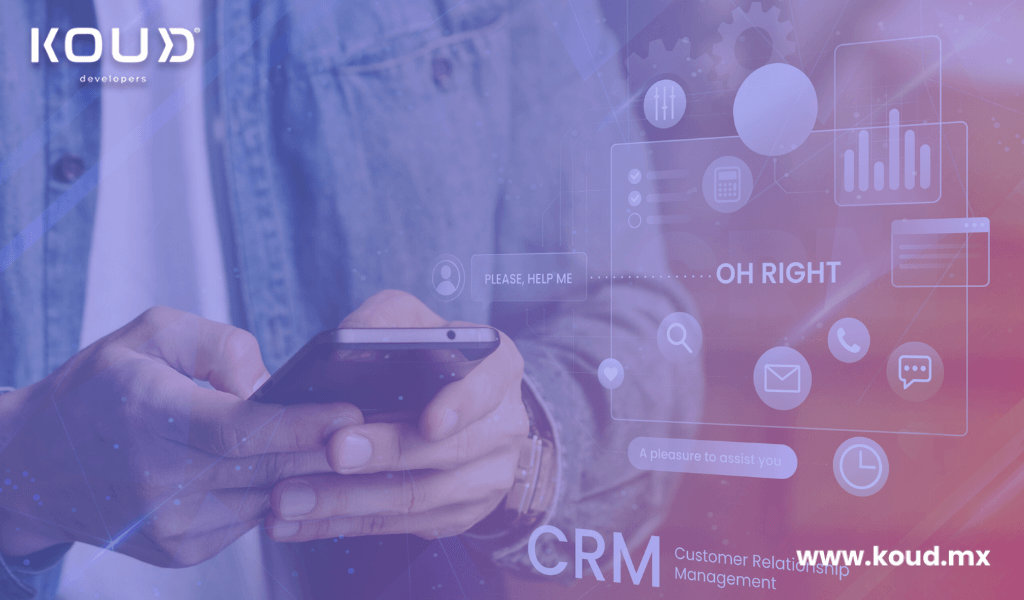What is a CRM and How Can It Benefit Your Business?
In an environment where the customer is the center of every strategy, understanding what a CRM is and how it can transform the way we manage our business relationships is not just relevant—it is essential. From my experience integrating CRM platforms across different sectors, I can assure you that this tool is not merely software, but a customer-centered work philosophy that drives concrete results.
What is a CRM?
A CRM (Customer Relationship Management) is a system that allows you to comprehensively manage relationships with current and potential customers. It’s not just about storing contact data but leveraging that information to personalize communication, improve service, and automate key marketing, sales, and service processes.
How does a CRM work?
Beyond being a client list, a CRM tracks every point of contact between the customer and your company: website visits, calls, emails, previous purchases, and more. In my experience, this traceability has been essential for offering faster responses, generating personalized proposals, and increasing lead conversion rates.
A good CRM:
- Centralizes valuable customer information
- Automates repetitive tasks
- Integrates the whole team in real time
- Facilitates sales and service tracking
- Offers smart insights to make better decisions
Main benefits of a CRM
Improved productivity
Thanks to task automation and information centralization, my team stopped relying on spreadsheets and sticky notes to focus on what really matters: selling and providing quality service.
Increased sales
Implementing CRM helped us better qualify leads, optimize the sales funnel, and boost conversions. Many businesses report up to a 37% increase in sales revenue after using CRM.
Personalized customer service
Interaction history allows anticipating needs, offering faster solutions, and creating an experience that builds loyalty. A well-served customer is a returning customer.
Accessibility and collaboration
With cloud-based CRM, my team accesses the same information from anywhere. This accessibility has been key for distributed or mobile teams.
Types of CRM: Which to choose?
Cloud CRM
- Accessible from any device or location
- Requires minimal upfront investment
- Automatic maintenance and updates
- Ideal for growing companies or those without technical teams
- Accessible from any device or location
On-Premise CRM
- Requires installation and self-maintenance
- Higher initial investment
- Full control over data
- Recommended for companies with robust IT infrastructure
- Requires installation and self-maintenance
CRM applications in different areas
Sales CRM
Facilitates lead management, negotiation tracking, and pipeline organization. In our company, it reduced the sales cycle and prioritized the most valuable prospects.
Marketing CRM
Thanks to campaign automation and data-based segmentation, we achieved more effective communications and a higher return on acquisition and loyalty strategies.
Customer Service CRM
We automated responses, integrated channels (phone, email, chat), and provided efficient self-service. This decreased response times and increased customer satisfaction.
Does my company need a CRM?
Here are some indicators that say yes:
- Your team does not share the same customer information
- You use spreadsheets to track sales
- You lose opportunities due to disorganization
- You cannot measure sales and service performance
- Your customers complain about slow or generic responses
CRM vs ERP: Are they the same?
- CRM focuses on customer relationships: sales, marketing, service.
- ERP manages internal processes: finance, inventory, logistics.
- Both complement each other, and in my experience, integrating them gives a 360° view of the business.
Artificial Intelligence and CRM
AI in CRM predicts behaviors, recommends actions, and automates tasks. In our strategy, using AI allowed us to anticipate when a customer was ready to buy and automate key follow-ups.
Blockchain and CRM
Blockchain enhances transparency and security of customer data. Although still in early stages, it is already seen as a powerful complement for trust in digital interactions.
Empresa
- Nosotros somos
Somos una empresa mexicana con más de 12 años de trayectoria en la industria
Servicios
- Desarrollo de Software a la medida
- Staffing TI
- Headhunting TI
Contacto
- +52 1 33 2342 9770
- letskoud@qa.koud.mx
- Av. Patria 2085 int. 175 piso 1 puerta de hierro Zapopan Ja. 45116


